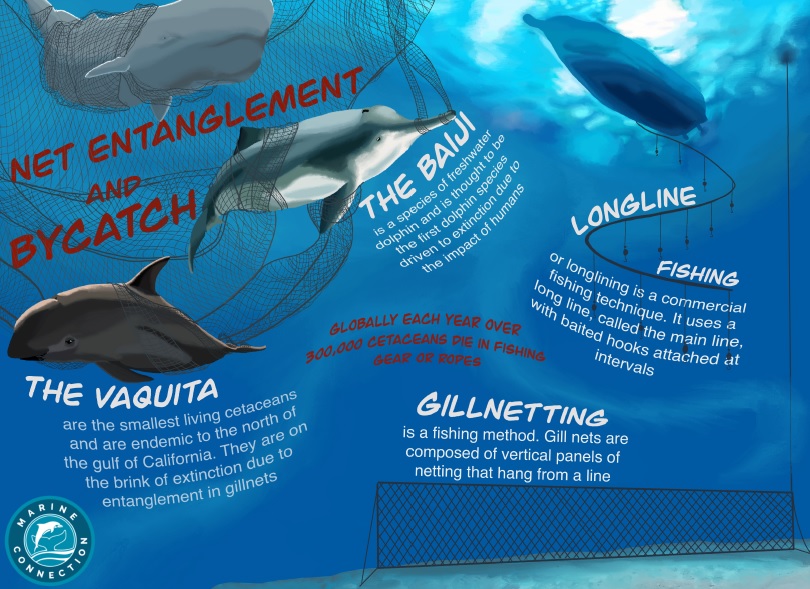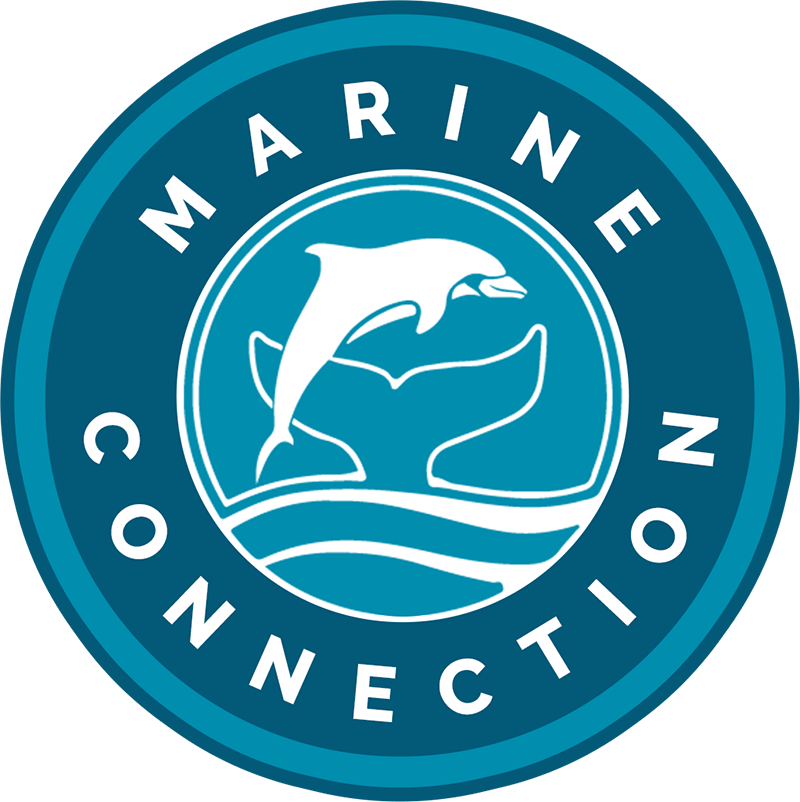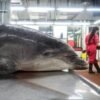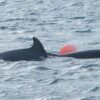Fishing gear entanglement is a global issue, and the biggest, most serious threat affecting whales, dolphins, and porpoises of all sizes. The physical injuries, stress, and restricted movement caused by nets, lines, and traps can lead to drowning, starvation, or severe infections. Even when they escape or are freed, the long-term damage often reduces their chances of survival. This problem highlights the urgent need for better fishing practices, gear modifications, and effective rescue and rehabilitation efforts.
Every day, thousands of miles of legal fishing nets are dragged through the oceans—some so massive they could fit up to ten Boeing 747 jumbo jets inside. These enormous trawl nets, along with gillnets and creel ropes, sweep indiscriminately through the water, trapping everything in their path. The animals unintentionally caught by this active fishing gear are known as bycatch—a tragic consequence of modern industrial fishing.
But the damage doesn’t stop when the fishing ends. Ghost nets—lost, abandoned, or discarded fishing gear—continue drifting through the oceans, entangling marine life for months or even years. These silent killers haunt the seas long after the boats are gone, causing untold harm to ecosystems worldwide.
The harm that fishing gear causes cannot be overestimated:
- More than 70% of the North Atlantic right whale population bear scars from previous fishing gear entanglements
- A study showed that female right whales who experienced ‘minor’ entanglements had the lowest chances of successfully breeding.
- An Icelandic study showed that 25-50% of humpback whales had previously been entangled.
- More than 10,000 porpoises die in fishing nets in British waters each year.
- In Scotland, minke whales (the smallest of the baleen whales), represent 87% of reported entanglements.
- Between 1990 and 2014, the UK Cetacean Strandings Investigation Programme (CSIP) carried out over 3,000 post-mortems and 700 animals were found to have died through entanglement.
- The world’s smallest dolphin, the Maui, in New Zealand now number less than 50
- There are now fewer than 10 of the world’s smallest porpoise, the Vaquita, in the Gulf of California
- Bycatch due to fishing gear also threatens 11 of the 13 species of small cetaceans listed as ‘critically endangered’ on the IUCN Red List
- 370 dolphins (90% of which were common dolphins) washed up on French beaches between December 2022 and January 2023. Most showed signs of being caught in fishing gear.
- From 1991 to 2023, 45 killer whales were entangled in fishing gear in Alaska, 34 died.
The world’s smallest dolphin (Māui dolphin) and smallest porpoise (vaquita) are on the brink of extinction — fewer than 50 Māui dolphins and under 10 vaquitas remain.
They’re dying in fishing nets. If we don’t act now, they’ll be gone forever.

Protecting dolphins, whales, and porpoises starts with YOU!
Innovative progress is being made globally to create fishing gear and methods that reduce harm to cetaceans, but at Marine Connection, we believe our most powerful tool is public awareness.
Consumers have the power to drive real change. While labels like “Dolphin Safe” or sustainable fishing certifications can be a step in the right direction, they don’t fully guarantee that no harm was caused to marine mammals during the fishing process.
The solution is simple:
If you care about protecting these remarkable creatures, the most impactful action you can take is to leave fish off your plate.
It’s a small change that makes a big difference. Less demand for seafood means less destructive fishing gear in our oceans—and a safer future for dolphins, whales, and porpoises.
Change is easy. All it takes is caring.



